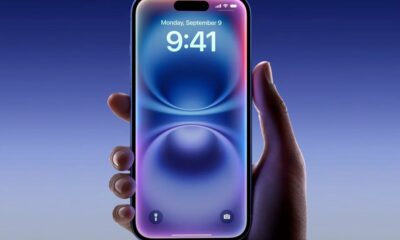Apple’s privacy-protecting Identifier for Advertisers (IDFA) is expected to cost tech companies $16 billion in the coming year, an increase of 9%, according to a report by data solutions provider Lotame. However, a separate academic study has found companies already have ways around it.
What it is. IDFA is a random device identifier assigned by Apple. It lets advertisers track users to deliver customized advertising, while protecting personal information. The Android equivalent is Google Play Services ID for Android.
Last fall, Lotame estimated IDFA would have a total financial impact of $10 billion on Facebook, Twitter, Snap, and YouTube, with Facebook being responsible for more than 80% of that. That was a very good estimate.
During Facebook’s Q4 earnings call CFO David Wehner said, “…we believe the impact of iOS overall as a headwind on our business in 2022 is on the order of $10 billion, so it’s a pretty significant headwind for our business. And we’re seeing that impact in a number of verticals. E-commerce was an area where we saw a meaningful slowdown in growth in Q4.”
Get the daily newsletter digital marketers rely on.
Who will lose what. Lotame expects Facebook to be the biggest loser again next year. It projects the company to have a $12.8 billion loss, followed by YouTube at $2.1 billion, SNAP $546 million and Twitter $323 million.
However, a new report suggests that while IFDA has made tracking more difficult, companies appear to be finding ways around it.
The report by Oxford academics Konrad Kollnig, Max Van Kleek, Reuben Binns, and Nigel Shadbolt, with independent U.S.-based researcher Anastasia Shuba, will be published in June (a draft version is available). The team analyzed 1,759 apps before and after Apple introduced its protections.
Proof of continued tracking. While tracking did decrease, there was little change in apps tracking libraries, which record usage frequency and activities. Even more disturbing: Many apps continued to collect tracking data despite users having asked the apps not to be tracked.
The researchers also found evidence of app makers engaging in fingerprinting of users, collecting device and usage data to create a unique identifier to track the user, through the use of server-side code.
“While Apple’s changes make tracking individual users more difficult, they motivate a counter-movement, and reinforce existing market power of gatekeeper companies with access to large troves of first-party data,” they state in their paper.
One company that IFDA is helping? Apple. Its Search Ads program, which prioritizes placement in the App Store, grew by $3.7 billion in 2021, an increase of 238% over the previous year, according to market analyst Omdia.
Why we care. Data collecting doesn’t go over well with a lot of the public (who also want personalized CX, go figure). That’s why Apple and Google (and others) have been working to protect personal information. It was inevitable that some companies would try to get around this. It is likely this will come back to bite them, as Apple and Google don’t like companies which break the rules.
Read next: Mozilla and Meta are working on privacy-preserving attribution





















You must be logged in to post a comment Login